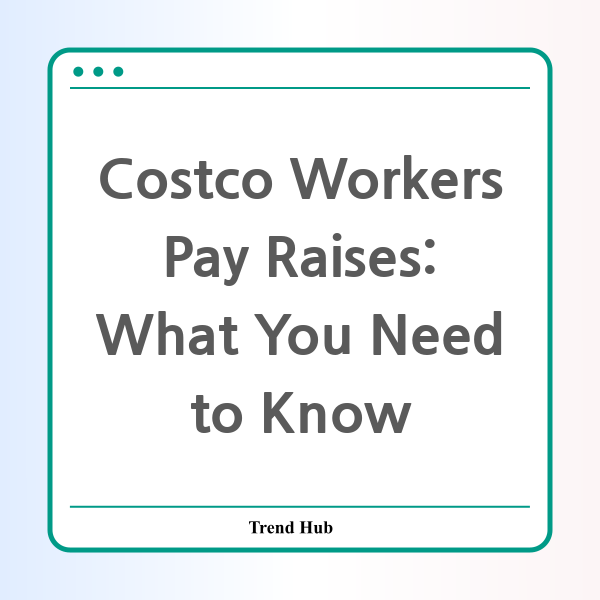* This website participates in the Amazon Affiliate Program and earns from qualifying purchases.

Are you aware of the significant changes happening at Costco regarding their workers' pay? In a bold move, Costco Wholesale has announced it will raise hourly wages for the majority of its U.S. store workers to over $30. This decision reflects the company’s commitment to ensuring competitive pay in the retail sector, particularly as labor negotiations heat up with union representatives.
Costco's recent memo to employees outlines a structured pay increase for both top-scale and entry-level positions. The top-tier employees will see an increase of $1 per hour, reaching $30.20 in the first year, followed by an additional $1 increase in each of the next two years. This approach aims to reward long-term employees and provide financial security as inflationary pressures continue to rise across the country. For those at the lower end of the pay scale, a 50-cent increase will elevate their starting pay to $20 per hour.
This progressive pay adjustment comes at a crucial time. Earlier this month, members of the Teamsters union, which represents over 18,000 Costco workers, voted overwhelmingly—85% in favor—to authorize a strike if a new contract is not reached by the January 31 deadline. The union's leadership has vehemently stated that Costco must deliver a fair and reasonable agreement to its workers, touting the company’s "pro-worker" claims.
In the face of the upcoming contract expiration, Costco’s announcement to grant pay raises to its non-union employees only adds to the tension. Over 200,000 non-union workers will benefit from these pay hikes and additional benefits, including an extra week of vacation after 30 years of service, and better vacation policies for new hires. Despite this, unionized workers await their turn for similar wage increases, creating a divide among employees that could potentially escalate into labor unrest.
So, what does this mean for Costco's workforce and the retail industry as a whole? First, the proposed pay raises may position Costco as a more attractive employer for job seekers, moving beyond just a stepping stone retail job. With the company emphasizing that its wages and benefits far outpace other retail competitors, this could lead to lower turnover rates and a more dedicated workforce, which many companies strive to achieve.
However, the looming threat of a strike from unionized workers raises questions about the sustainability of this pay model. Labor relations experts suggest that if Costco can find common ground with the Teamsters union, not only could it avert a costly strike, but it also might enhance its reputation as a genuinely employee-focused organization.
Costco has established itself as a leader in the retail sector, but as the landscape changes, so too must its approach to employee compensation and benefits. The company's ability to resolve these negotiations positively may set a precedent for labor relations in the industry.
The unfolding events at Costco are crucial for employees, customers, and those observing retail trends. As discussions progress with the Teamsters union, the outcomes of these negotiations could impact the future landscape of retail employment across the country. Stay tuned for more updates on this developing story.
* This website participates in the Amazon Affiliate Program and earns from qualifying purchases.